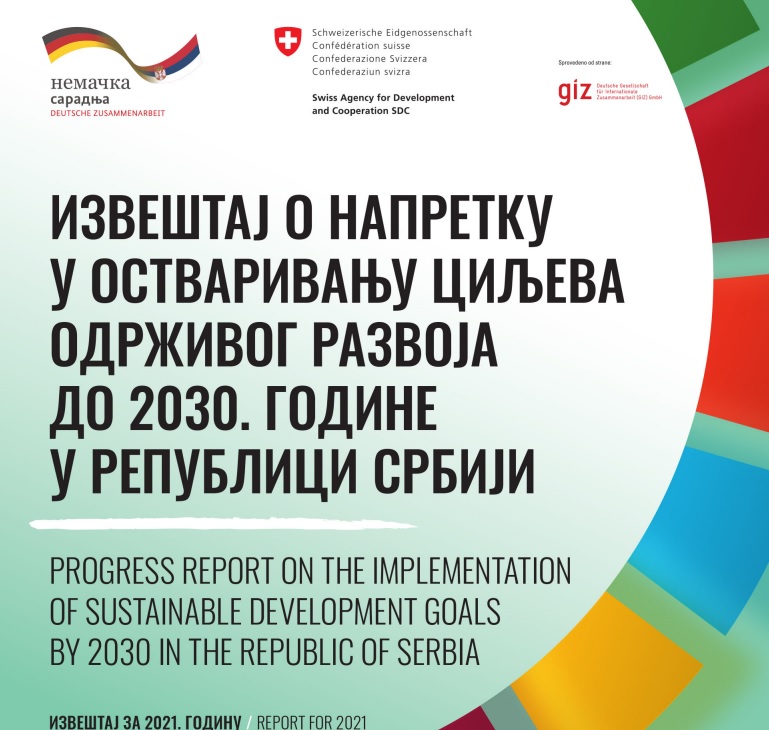With the support of the governments of Switzerland and Germany, the Statistical Office of the Republic of Serbia published the second Progress Report on the Implementation of Sustainable Development Goals for 2021
Owing to the continuity in monitoring of the progress, systematic insights have been allowed into the fields in which the Republic of Serbia is progressing towards the achievement of goals listed under the 2030 Agenda for Sustainable Development, as well as into the fields that require additional efforts to accelerate the development processes.
In this year’s report, the availability of data has been improved for indicators of the Sustainable Development Goals in the field of environment, as a result of the project “Building capacity to collect national data within the indicators of the Sustainable Development Goals for monitoring and reporting on the environmental dimension of the 2030 Agenda in Serbia”. The project was implemented in 2021 by the United Nations Environment Programme (UNEP) and the Office of the United Nations Permanent Representative (UN) in cooperation with the Statistical Office of the Republic of Serbia (SORS).
The 2030 Agenda for Sustainable Development and the 17 SDGs adopted by all member states of the United Nations in September 2015 represent a global strategic framework for sustainable development that all member states and relevant international actors should strive for. The 2030 Agenda provides the basis for a vision of the development as a sustainable prosperity based on social inclusion and equality, while preserving our planet.
One of the fundamental principles on which this strategic framework is based, is that no one should be left behind by the development processes and development achievements. In the period between the two reports, the Statistical Office of the Republic of Serbia, in cooperation with GIZ, published several informative publications on the implementation of SDGs from the perspective of different groups that may be left behind by the development processes or that are insufficiently included therein. Three publications from the series “Leave no one behind” were published: the first was dedicated to the Roma population, the second to young people, and the third to inequalities that exist between the populations in urban and rural settlements, as well as among the regions in Serbia. The new report on the progress in achieving the SDGs for 2021 will be accompanied by new publications from this edition, dedicated to children and gender aspects of sustainable development.

